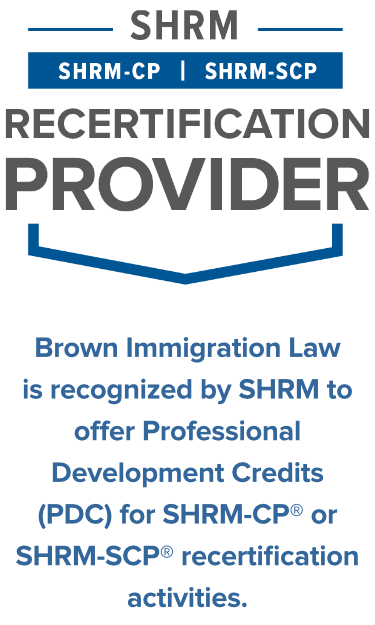This memo is intended for general information purposes only and does not constitute legal advice. You should not act or rely on this information without seeking the advice of a competent, licensed immigration attorney.
Search of Electronic Devices Upon Entry into the United States
U.S. Customs and Border Protection (CBP) has the authority to search all electronic devices, including phones, laptops, tablets, cameras, and any other devices of all persons entering the United States, regardless of status (this applies to U.S. citizens as well).
These searches may occur at land border crossings, airports, seaports, and CBP preclearance locations outside of the United States. CBP does not require a warrant, cause, or suspicion to perform basic searches, so anyone traveling to the U.S. should expect the possibility of having their electronic devices searched.
Basic and Advanced Searches
There are two types of device searches that may occur upon entry into the United States:
- Basic Search: A basic search is any border search of an electronic device that generally involves an officer reviewing the contents of the device manually without the assistance of any external equipment.
- Advanced Search: An advanced search is any search in which an officer connects external equipment to an electronic device not merely to gain access to the device, but to review, copy, and/or analyze its contents.
- Under CBP policy, advanced searches require a reasonable suspicion of a violation of a law enforced or administered by CBP or a national security concern and requires the approval of a senior manager prior to conducting the search.
According to CBP data, in Fiscal Year 2024 (10/1/2023 – 9/30/2024), less than 0.01% of all arriving international travelers had their electronic devices searched by CBP at a U.S. port of entry. This included 42,719 basic searches and 4,239 advanced searches, with similar trends reported for Q1 and Q2 of Fiscal Year 2025 (10/1/2024 – 3/31/2025).
Know Your Rights & Potential Risks
CBP has the authority to physically inspect electronic devices. While you are not required to provide device passwords or other log in information, refusing to do so may result in possible consequences, such as device seizure, additional scrutiny, and, in some cases, denied entry.
- U.S. citizens and Lawful Permanent Residents cannot be denied entry into the U.S. for refusing to provide access to electronic devices but may face additional scrutiny, device seizure, and delays as a result.
- Visa holders and foreign visitors may be denied entry to the U.S. for refusing to provide access to electronic devices. At CBP preclearance locations outside of the U.S., this may result in boarding being denied.
Protecting Sensitive Data
All travelers’ rights are limited at the border, but there are some steps that can be taken to help protect sensitive data. Before traveling, save important files securely in the cloud or on an external drive and keep backups separate from your laptop and other devices in your possession in case they are seized.
If your electronic devices are searched by CBP, perform a thorough inspection afterwards. Scan your electronics for any unauthorized software or other changes to the device and change all passwords and login credentials to prevent continuing access and protect against potential remote access attacks and data interception.
Also be sure to document the details of any CBP search, including the names and badge numbers of the agents. If the interview is recorded, request a copy of the transcript, or document the questions asked if a transcript is unavailable.
For more information on CBP policy and procedures for electronic device searches, including practices for data storage and sharing across government agencies, visit: https://www.cbp.gov/travel/cbp-search-authority/border-search-electronic-devices.
This CBP tear sheet on Border Search of Electronic Devices is another helpful resource on what to expect of this process.
General Reminders for Interactions with CBP
Like any other interaction with government officials, travelers interacting with CBP agents should remain calm, respectful, and honest. All travelers should note that it is a crime under 18 U.S.C. §1001 to knowingly and willfully make false statements to a department or agency of the United States.
Foreign nationals should also be aware that willfully misrepresenting material facts to a U.S. government official while seeking admission into the United States can carry serious immigration consequences under INA §212(a)(6)(C)(i). Noncitizens with concerns about potential grounds of inadmissibility should consult a licensed immigration attorney before seeking admission into the U.S.



